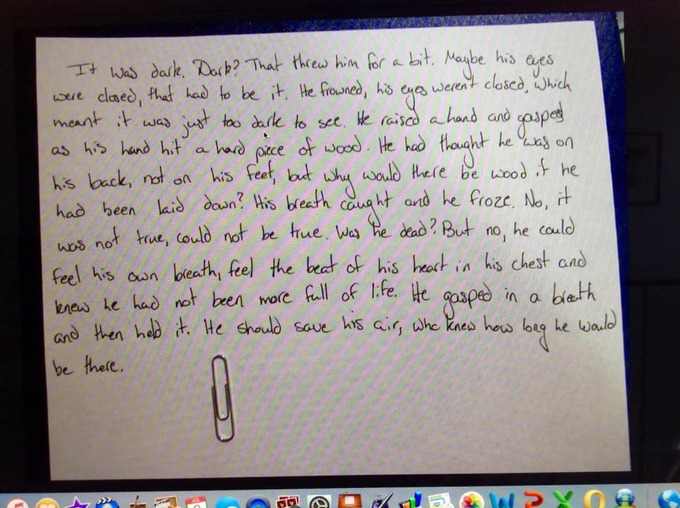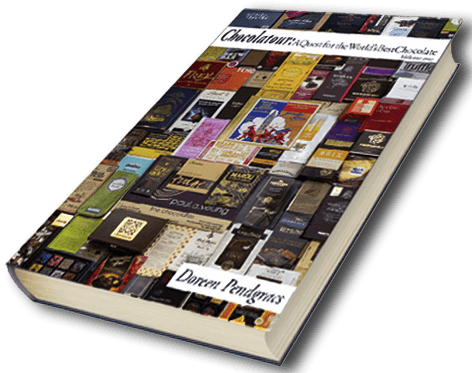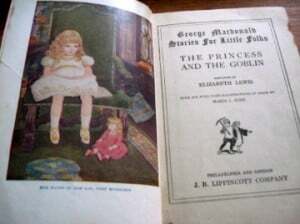the power of graphology
This week, I’d like to talk about handwriting. Did you know that National Handwriting Day in the US commemorates the January 23rd, 1737 birthday of John Hancock, who evidently was the first to sign the Declaration of Independence and had the “boldest” signature? On January 23rd every year, we are all encouraged to promote and encourage legible handwriting. But I think we should celebrate good and legible handwriting every day. 😊
I think you’ll agree that the art of legible handwriting is quickly going the way of the dodo bird, as most of us write very little by hand these days. Most everything is computer generated. I used to take pride in the quality of my penmanship, but I can no longer say that. My writing, although likely still better than average, is by far a work of art. Hats off to those who have pursued the art of handwriting through the study of calligraphy. But we’ll leave that topic for a future discussion.
I find the subject of graphology–the study and analysis of handwriting–to be a fascinating one. Graphologists use handwriting to analyze an individual’s personality, strengths, fears and skills.
I recently read about Dr. Annette Poizner, a graphology expert, in the Winnipeg Free Press. The article mentioned how employers are consulting graphologists to analyze the handwriting of prospective employees to determine if they have any character flaws that may not otherwise be detected during the recruitment process. Fascinating stuff.
But what’s really scary for people like me is that my signature changes dependent on my mood, the formality of the document I’m signing, whether I’m rushed, etc. If rushed, I generally only sign half my surname. If I’m in a really creative or expressive mood, I’ll likely include larger swoops in my lettering. If I’m feeling inhibited or stressed, I may write smaller and more methodically–but probably the most legibly of any variations of my signature.
So if someone like Dr. Poizner is analyzing my handwriting, I would hope she has several writing samples to be able to acquire an accurate assessment based on more than one day and more than one situation.
Poizner, who has a Doctorate of Education in Counselling Psychology from University of Toronto and a Masters of Social Work from Columbia University of New York, says that doctors have been using graphology in conjunction with psychotherapy for years. An excerpt from her 2005 paper says that graphology can be used to chart therapeutic progress and to investigate pre-morbid personality structure as well. Perhaps this would be a good underlying theme for a new TV show. To read Poizner’s complete paper on the use of graphology within psychotherapy, access her website.
Graphology expert Jo Engel was once revered to be the world’s most renowned graphologist. A more contemporary style to graphology research is available via this site. Have a look around to learn the basics in an easy-to-absorb visual manner.
How’s your handwriting? Has it slipped in tidiness and legibility as mine has, or do you put a conscious effort into keeping your handwriting tidy and legible? Do you do much by cursive writing (longhand) anymore, or are your pens drying up from non-use as mine are? Please share your thoughts in the comment thread below.















Really it is very informative blog on Graphology. With the help of this I earn more knowledge about Graphology.
Thank you for sharing this informative article.
Thank you for sharing this informative article.
What an interesting article! I’ve used graphology for years. Early on in the 70s I used it to get a handle on prospective boyfriends. (That said, I usually ignored – to my sorrow – early graphology-warning signals if the guys were nifty!) Later on I used it to monitor a chronic knee injury that would signal its re-appearance in my downstrokes before I felt the pain a few days later. Today it is handy to detect ‘off-days’ caused by a concussion. If the upper curves are a bit shaky, I plan for an easy day.
As for handwriting that varies from time to time, well, of course it does! We all comprise multiple facets and phases – sometimes introvert (backslant), sometimes less so (forward slant), sometimes tired or depressed (line angles down), sometimes enthusiastic … and so on.
Its use as a hiring tool seems valid, as long as the prospective employer relies on a variety of signals and information and does not get hung up on one or two handwriting indicators that might be misinterpreted when taken out of context.
Thanks so much for your comment, Gwen! I agree. Graphology is an intriguing topic. One that I really think I could spend time researching — if I weren’t knee-deep in chocolate! I hope you’ll drop in here again soon. We have some terrific conversations on this blog. 🙂
WizardOfWords recently posted…how to be a better listener
Hi Doreen. I too study graphology and I can honestly say that it is an interesting topic. You can really tell a lot about a person’s personality just by looking at his and her signature!
Sany recently posted…How to Analyse Signature – Understanding How Signature Analysis Can Be Helpful to You
Thanks so much for joining the conversation, Sany. Yes, I really find the subject of graphology fascinating. Anything that can help provide insights into why we do things and our attitude is extremely helpful in moving forward.
WizardOfWords recently posted…born to blog
Thanks for posting the great the other graphology links and their benefits towards market. And more over the psychology of handwriting is quite brilliant and it would definitely helps other to start knowing.
Nice post. Thanks
I do trust that your handwriting reveals lot about your personality, I had an personal experience and had done my graphology.
I have study in Canada and i am working in a Hotel part time. I am studying and work also in Canada.
work and study
Thanks for your comment, Christine. I have been in contact with Dr. Poizner and graphologists do indeed use several writing samples to analyze one's character an innate abilities. Thank goodness! I am learning more from her about a process called "Projective Assessment" and will do a future post about that at some other time. Fascinating stuff!
I didn't know there was a National Handwriting Day, just as the US may not know we have Family Literacy Day at almost the same time. I think it shows that in both countries, writing and reading are obviously important skills that our children need to learn, and that we all need to practice and cultivate. Technology helps, but it's the basic skills that we still need to take the time to nurture.
Thank you for the leads to Annette Poizner's work, and the other graphology links. Fascinating work.
As my handwriting can change even within the same document, I hope that if it were ever analyzed, they would use more than one sample.
Interesting stuff, as always, Doreen.
Thanks so much for sharing your expertise with us, Sheila. It's definitely a fascinating topic that I will be further researching.
P.S. One other comment addressing your concern about your handwriting changing with mood. There are hundreds of variables that we look at in the spatial arrangement, writing form, and writing movement. In most cases, the characteristics that change most with mood are size and slant, which will not have a huge effect on the analysis. Your mood may change, but your core personality remains the same, so it's not a problem for the analyst. This is, of course, a generalization. Handwriting can change more permanently over time, or suddenly with a major trauma.
As a professional handwriting analyst for more than forty years, I have prepared thousands of analyses for employers. The problem is that there is no licensing of handwriting analysts (in the U.S., at least), and there are some who take a six or eight week course and advertise themselves as professionals. When used properly, handwriting analysis provides important information that can help employers put the right people in the right job, and avoid potential pathology.
Thanks to Marijke, Heather, and Annette for recent comments.
I know what you mean Marijke, about the wrong letters forming as you write. That seems to happen to me, too! Never used to. I guess it's as they say, "If you don't use it, you lose it." That obviously applies to proper handwriting as well.
Heather, good for you for hand writing letters. I rarely do that anymore, but used to take great pleasure in it. Now, I'm almost exclusively online.
And welcome to Dr. Annette Poizner for joining in on the conversation. You may not agree with the idea of employers using information gleaned from a graphology analysis when screening prospective employees, but evidently it's being done quite a bit these days. I'm looking forward to learning more about this fascinating topic.
Thanks for writing about the psychology of handwriting. I will just mention that, in my opinion, graphology is best used clinically in order to facilitate psychotherapy. I have reservations about the use of this tool for hiring/personnel assessment. The information that it reveals is fairly intimate and, arguably, not relevant nor appropriate to share with potential employers. Thanks for helping your readers know that the psychology of handwriting is a serious method of projective personality assessment.
I still write old-fashioned letters, maybe every two weeks, but I find my handwriting has deteriorated with age, and the use of the computer keyboard. I try to keep up not just my penmanship but the idea of sending hand written notes to people. It's so nice to get snail mail.
Like you, my signature changes depending on what I'm signing. When the kids were in school, their letters of absence and so on had one signature, but when I sign a cheque, it's different.
My penmanship was always bad and is still as an adult, but it's not because of laziness. I was never able to write neatly for more than a few lines, no matter how hard I tried. My arm and hand start to hurt if I force it and I know I am holding my writing tool as I should and not too tight either.
I also have a problem with the wrong letters being formed as I write. I know what letter I want but another one is formed as I write. Very frustrating.
To this day, when I'm working as an RN, I try so hard to write neatly in charts but I just can't, no matter how hard I try.
My dear friend, Roy, who has been reading the blog since its inception and who recently joined the tribe (as Big Roy) has been unable to post comments. He's asked me to relay them to the rest of you. Here's what he had to say about graphology:
My handwriting was fairly good in younger days. But after 27 years as a litigation lawyer, making lightning fast notes during interviews and trials, I let it get sloppy. Handwriting is not like riding a bike – it's more like dusting the furniture … don't maintain it and it shows. I admired the lovely handwriting of my grandparents; the beauty of the handwriting of civil servants of days gone by. I especially remember the graceful, artistic handwriting of the clerks in the Land Titles Office on Broadway. In every lawyer's office was a scribe who turned learned thoughts into documents of beauty.
If I were going to be 'interpreted' by Dr. Poisner, I'd caution her that I tend to 'ape' a form used by male actors Hollywood, which I find … kinda … stylized. If that's a psychological trait – haha. But my natural 'style' is more straight-up-and-down and round. Like my dad's handwriting was … if that's a psychological trait – haha.
I read up a bit on handwriting styles as psychological traits when I was in detectives on the Winnipeg Police 'Department' (as it then was) and have to agree … I believed then, that handwriting does disclose personality traits. Today, I could argue that personality traits and psychology are miles apart. But, if psychology and personality traits are intertwined … I guess the psychoanalysts are on the right track. Might have to put them in a barrel together and push them down a long, rocky hill to get the two together…
I certainly like reading your 'offerings' Doreen. We're lucky to have your site.